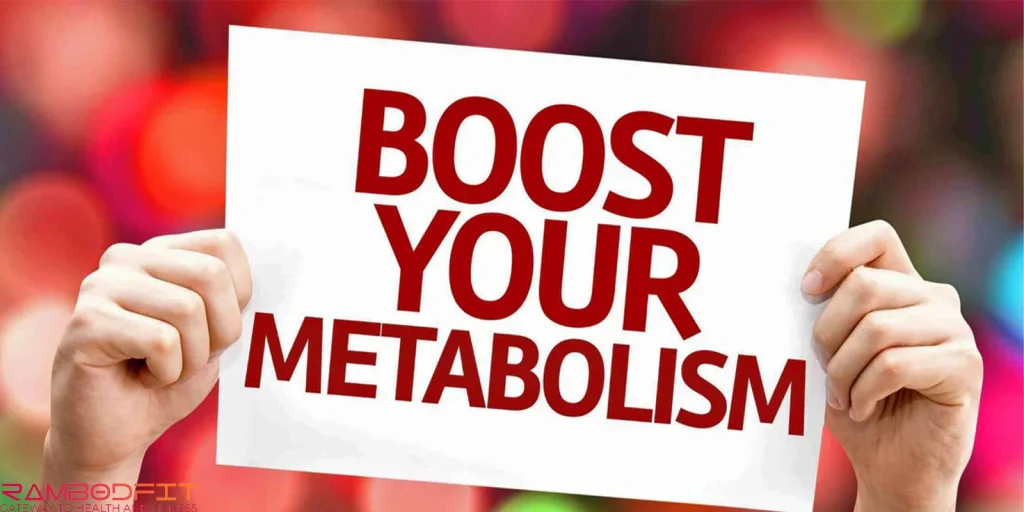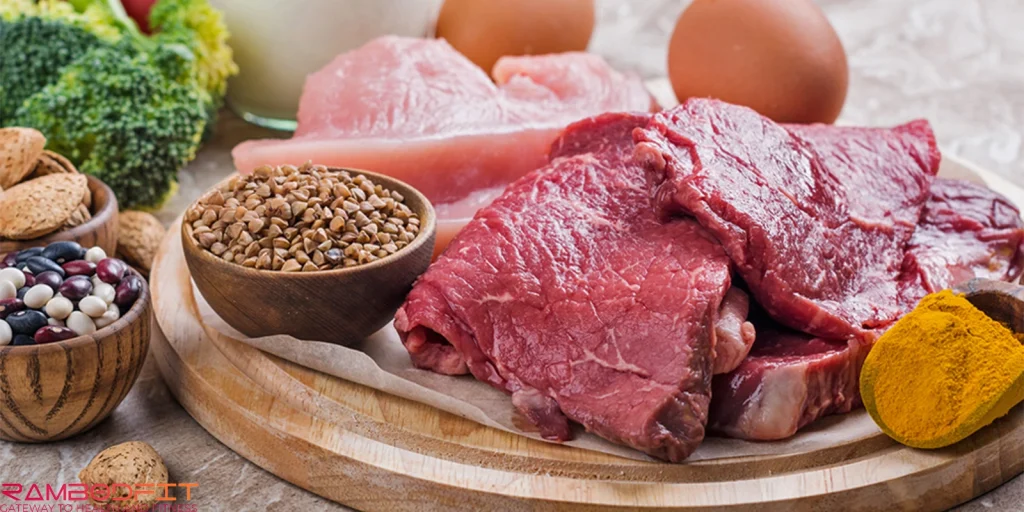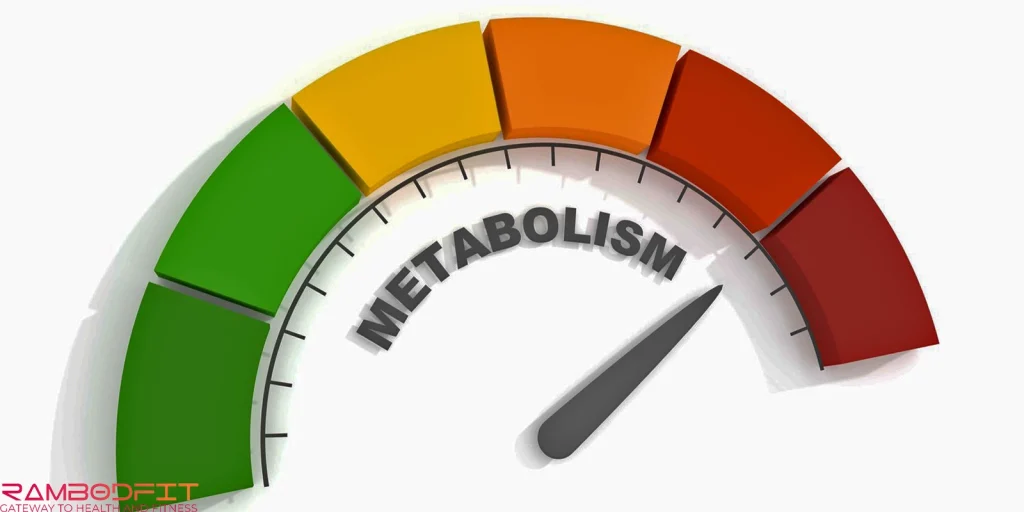


So, protein isn’t just there to help you flex in the mirror or rock those biceps—it’s actually a total calorie-burning ninja. Seriously, out of all the macros, protein is like the overachiever. Your body has to hustle way harder to break it down compared to carbs or fat. We’re talking more energy spent just digesting the stuff, so yep, you’re basically burning calories just by eating a chicken breast. Kinda wild, right?
If you’re trying to increase metabolism with protein, this is where it starts to make serious sense.
Honestly, the first time I learned about this, my mind did a little backflip. I stopped obsessing over just the number of calories and started caring about what those calories were actually made of. A hundred calories of protein is NOT the same as a hundred calories of donuts. Protein makes your metabolism sweat a bit, which means you end up torching more energy throughout the day. Not magic—just science doing its thing.
Learning how to increase metabolism with protein can really change the game for your energy and fat loss goals.
Here at Rambodfit, we’re gonna dig into all the nerdy details—like why protein cranks up your calorie burn, how it helps keep your muscles from vanishing, and even how it messes with your hunger signals (in a good way). I’ll spill my own hacks and screw-ups too, so you get the real picture, not just textbook stuff. Bottom line: if you wanna fire up your metabolism, protein’s your guy. Let’s break it down together.

Alright, here’s the thing about the Thermic Effect of Food (TEF): it’s basically your body burning calories just to deal with whatever you threw down your throat. It’s like your stomach and intestines are clocking in for a shift every time you eat—breaking stuff down, sucking up nutrients, getting them into your blood, and then the cells are like, “Alright, our turn!” Every step, burning off some energy. Wild, right? You’re losing calories before you even stand up from the table.
Now, protein? Oh, protein’s the real MVP here. Out of all the macros, it’s the priciest at the metabolic checkout. We’re talking 20-30% of those protein calories getting torched just in the process of digesting and using it. So, you eat a 100-calorie chicken breast, and poof, up to 30 calories are gone before you even think about hitting the gym. That’s a pretty sweet deal if you ask me.
Trying to increase metabolism with protein makes total sense when you look at numbers like that. It’s practically a cheat code for passive calorie burn.
Carbs and fats, though? Not so much. Carbs burn off, like, 5-10% of their calories during digestion, and fats are even lazier—barely 5%. So, yeah, if you’re all about efficiency, protein’s your guy. Your body has to work way harder to break it down, which means you’re passively burning more calories just by eating it. It’s like getting a little metabolic bonus every meal.
Honestly, when I first started messing with higher protein meals, I’d get this weird post-lunch warmth, almost like a mini internal furnace kicking on. Turns out that’s TEF doing its thing. It’s not just me, either. Tons of athletes and fitness nerds swear by this. They’re all about using protein’s thermic effect to tweak their metabolism and body comp. Makes you look at your food a little differently.
Alright, here’s the lowdown on protein—no filter. Everyone’s always blabbing about carbs and fats like they’re the MVPs, but honestly? Protein’s out here playing its own game. Carbs are the lazy option. Your body grabs ‘em, does a little magic trick, and boom, instant energy. Seriously, it’s like microwaving leftovers. Zero effort.
Now, fats—oh man, they’re sly. Your body treats fat like a rainy-day fund. Barely touches it unless it really has to. It’s like that friend who always has a backup plan but never tells you what it is.
But protein? Totally different story. Processing protein is basically your body suiting up for a home renovation. First, it has to chop up these wild amino acid chains, then deal with the nitrogen mess (yeah, there’s a proper term for it, but let’s not pretend anyone actually cares). After that, it’s either piecing together new proteins or, if things get desperate, converting some into sugar. Each step? Burns energy. It’s like your body’s running laps just to figure out what to do with this stuff. This is why you can really increase metabolism with protein better than with other macros.
So when people hype up high-protein diets for ramping up metabolism, they’re actually onto something. Your body’s working overtime just to handle the protein you throw at it, which means you’re torching more calories even while you’re binge-watching Netflix. It’s basically a free metabolic upgrade—your body’s out here grinding, and you’re just along for the ride. Not a bad deal if you ask me. If you want to truly increase metabolism with protein, let that heavy lifting do its thing.
Here’s where it gets really wild, especially when you’re running low on carbs.
So, when you basically ditch carbs, your body flips a switch and cranks up something called gluconeogenesis. Yeah, it’s a mouthful. Basically, your liver starts hustling, turning specific amino acids (think those classic BCAAs: leucine, isoleucine, valine, alanine—the usual suspects) into glucose. Why? Well, your brain and organs still gotta run, even if you’re skipping the bread basket.
But here’s the kicker: that whole process is kinda like your metabolism hitting the gym. It burns through extra calories just to keep up with the demand. So, if you jack up your protein while keeping carbs down, your body’s working overtime, torching even more calories to wrangle that protein into usable fuel. That’s one of the most underrated ways to increase metabolism with protein—by making your body do more just to keep things running. If you want to increase metabolism with protein effectively, this is a top strategy to try.
Honestly, I’ve tried this myself—high protein, barely any carbs—and I swear my energy never tanked. Even when I was skipping meals, my metabolism still felt like it was in beast mode. Science says that’s gluconeogenesis doing its thing, and honestly, I buy it.

People always think, “Oh, I’ll just slam more protein and I’ll wake up jacked.” Sorry, but nah. Chugging shakes by the gallon isn’t gonna magically add muscle to your frame. Unless you’re actually hitting the weights—like, really getting after it—protein alone just isn’t gonna cut it.
Here’s the real kicker: muscle is like your personal calorie incinerator. The more you’ve got, the more calories you burn just sitting around doing absolutely nothing. Seriously, you could be binge-watching Netflix or drooling on your pillow, and your muscles are still working for you, torching calories. Wild, right?
When I started dialing in my protein AND dragging myself to the gym—hello, squats and deadlifts—I noticed a real difference. I wasn’t just sort of “toned,” my metabolism felt like it had hit a higher gear. That combo helped me increase metabolism with protein and muscle at the same time. Losing fat didn’t feel like such a grind anymore, and I had way more steady energy. Kind of like my body went from a Corolla to a Mustang, if you catch my drift. It’s definitely one of the best ways to increase metabolism with protein naturally and sustainably.
Alright, let’s talk about protein and appetite. This stuff’s like magic for keeping your cravings in check—seriously. When you eat more protein, your gut pumps out these hormones (PYY and GLP-1—yeah, science-y names, but whatever) that pretty much tell your brain, “Hey, we’re good, no more food needed.” It’s wild. And at the same time, protein helps kick ghrelin (that annoying “I’m starving” hormone) to the curb.
So, you boost your protein? Suddenly, you’re not raiding the pantry at 11 pm looking for chips. Trust me, when I started piling more protein onto my plate, those random snack attacks kinda disappeared. Meals actually filled me up, and I stopped obsessing about food. It’s honestly one of the only things that’s made managing calories feel doable for me. On top of that, it helped me increase my metabolism with protein without even thinking about it too hard. Learning how to increase metabolism with protein has been a game-changer for controlling hunger and cravings.
Bottom line—those hormones are doing some serious heavy lifting. If you want to keep your hunger in check without feeling like you’re constantly white-knuckling it, protein’s where it’s at..
once upon a time (well, not that long ago), I decided to crank up my protein—like, full-send style. I went from the usual “eh, that’s probably enough” to straight-up doubling it: 1 gram per kilo of body weight to 2 grams. Wild, right? Didn’t expect much, honestly, but then a bunch of weirdly great things started happening.
First off, I was just…full. Not “ugh, I need a nap” stuffed, but that solid, satisfied full where you don’t keep prowling the kitchen for snacks. I actually started eating less, without even thinking about it. Magic? Not really, but it felt like it.
And energy? Dude, I had way more pep in my step. Same calories, but it was like my body figured out how to burn fuel better. Maybe it’s “metabolic efficiency” or whatever the nerds call it. All I know is, I wasn’t dragging myself through the day anymore. This was definitely a key way to increase metabolism with protein.
Now, the gym stuff—this blew my mind. Kept hitting the weights, and suddenly, I was hanging onto muscle and losing the fluff. Clothes started fitting better, scale didn’t budge much, but the mirror was way friendlier. Metabolism cranked up a notch, too. Now, don’t get it twisted. If you just double your protein and start inhaling extra calories while living like a potato, yeah, you’ll still gain fat. There’s no protein fairy. But if you’re actually moving your body and keeping an eye on the whole calorie circus? Bumping up protein is honestly a game-changer. No hype, just real talk about how to increase metabolism with protein effectively..
Alright, let’s just cut to the chase: More protein? Yeah, it really does make your body torch a few extra calories. But don’t get too hyped — there’s a bit more to the story.
Here’s the scoop: Proteins are like the drama queen of the macros. Your body has to work harder (burning more calories) just to break it down. That’s the “thermic effect” people love to throw around at the gym.
If you’re one of those low-carb folks, protein gets even wilder. Your body scrambles to turn protein into glucose (that’s gluconeogenesis, if you wanna sound smart at brunch), which takes even more energy. Basically, your metabolism’s pulling an all-nighter.
One of the best ways to increase metabolism with protein is by leveraging this very process, making your body work overtime without you even noticing. Learning how to increase metabolism with protein can seriously boost your calorie burn.
Also, more protein means more muscle (assuming you’re not skipping leg day). Muscle is greedy — it eats up calories even when you’re just binge-watching Netflix.
Plus, protein fills you up, so you might just end up eating less junk without even trying. Sneaky, but it works.
But listen, doubling your protein isn’t some magic hack. It’s solid, yeah, but you still need to actually move your body and eat like a grown-up if you want real results. No shortcuts, sorry!

Alright, let’s cut through the nutrition jargon for a sec. Doubling your protein? That’s not just some diet hack people on TikTok are yelling about—it’s basically a full-on metabolic upgrade. We’re talking big changes in how your body burns through calories, keeps your muscles from bailing on you, and even how hungry you feel at 11 p.m. when the snack demon strikes. If you want to increase metabolism with protein, this is exactly how you do it.
Here’s the deal: Protein is a diva. Your body has to work its butt off breaking it down (unlike carbs or fat, which just kinda stroll in). So, every time you chow down on extra protein, your metabolism goes, “Whoa, we’re doing WORK here!” Burns more calories just processing your food. Kinda wild. That’s one of the best ways to naturally increase metabolism with protein in your daily routine.
There’s also this thing—yeah, science word incoming—gluconeogenesis. Basically, if you’re not wolfing down carbs, your body can flip amino acids into glucose to keep your brain and organs happy. It’s like a backup generator for energy, and guess what? It burns more calories in the process. This process itself can help you increase metabolism with protein more than you’d think.
Now, let’s talk muscle. If you’re hitting the gym and eating more protein, your body hangs on to that muscle (or even builds more). And muscle is expensive real estate—it demands more calories 24/7, even when you’re just chilling on the couch. So, the more muscle you’ve got, the more calories you torch doing absolutely nothing. Sweet deal.
Also, protein is a straight-up hunger assassin. It messes with your hunger hormones—kicks ghrelin (the “feed me” hormone) to the curb and keeps you full way longer. So, less snacking, fewer “oops, I ate half the pantry” moments. That’s not just willpower, that’s biochemistry doing you a solid.
Honestly, when I doubled my protein, it was a game changer. Better energy, less random snacking, felt stronger in the gym, and, yeah, started seeing actual muscle in the mirror. Not magic, just science doing its thing.
But hey, don’t get it twisted—it’s not like you can just pile on the protein and call it a day. You gotta pair it with smart eating, some weights, and not living off energy drinks and fries. It’s the combo that really wakes up your metabolism.
So, if you’re looking to fire up your calorie burn, drop some fat, and feel full for once, bumping up your protein is honestly one of the smartest moves you can make. Just don’t expect miracles overnight—think of it as putting your metabolism in the fast lane, not hitting a magic “shred” button. Try it, pay attention to how your body feels, and remember—protein’s not a miracle cure, but it’s a hell of a tool if you use it right.
References and Further Studies
Protein Metabolism and Energy Expenditure — PubMed
Thermic Effect of Protein and Metabolic Implications — PubMed
Well, don’t expect to wake up with Hulk arms. More protein won’t magically morph into muscle unless you’re actually challenging your body—sorry, that’s just how it goes. You might feel fuller after meals (hey, that’s a win), and your body will work a bit harder to digest it, so maybe a tiny metabolism bump. But mostly, if you’re not burning it off or building muscle, your body’s just gonna use that extra protein for energy or, let’s be real, stash it as fat if you’re eating more than you burn. Still, that slight extra work your body does to increase metabolism with protein isn’t nothing.
Yeah, that’s kinda been debunked. Turns out, your body’s way more flexible than we used to think. It’s not like you eat a steak and your system just throws up its hands after 30 grams and says, “Nope, I’m done!” Spread your protein out over the day and you’ll be golden—just focus on hitting your daily target, not sweating every single meal down to the gram. Doing it this way helps you consistently increase metabolism with protein without stressing over tiny details.
For most folks with healthy kidneys, nah, not really. Honestly, a bit more protein can even help your metabolism chug along. The real problem? If you’ve got kidney issues or you never, ever drink water, piling on the protein might cause you some grief. Basically: don’t overdo it, listen to your body, and maybe go easy on the triple-protein shakes if you’re not even thirsty. But when used right, protein is one of the best tools to naturally increase metabolism with protein and keep things firing.